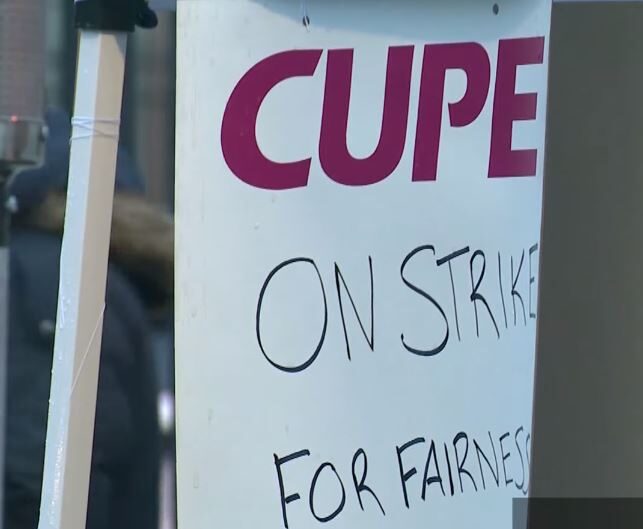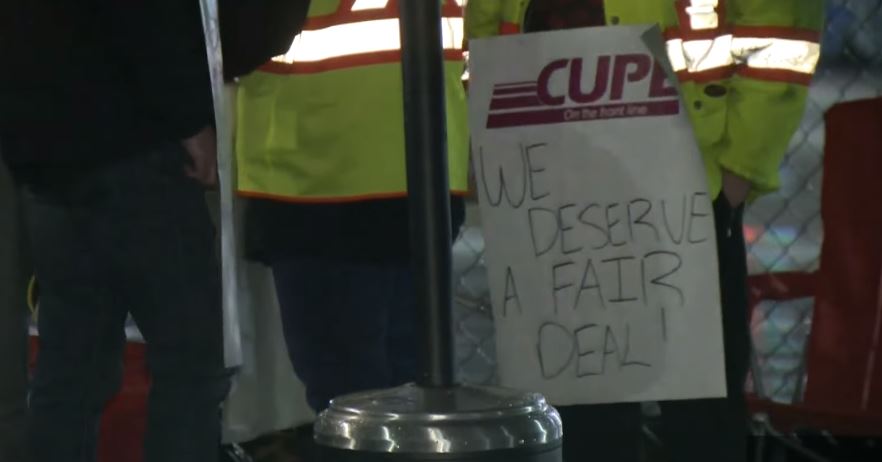

Metro Vancouver residents heaved a collective sigh of relief as bus and SeaBus services resumed after a 48-hour strike by Coast Mountain Bus Company (CMBC) workers.
The transit shutdown, affecting almost all routes in the region, leftover 300,000 daily riders stranded. While buses and SeaBus services are back on track, the underlying contract dispute remains unresolved, with looming threats of a 72-hour strike on February 3.
The union representing more than 180 CMBC employees, comprising transit supervisors, engineers, and maintenance and communication staff, reported their return to work at 3 a.m. PT on Wednesday.
CMBC, a subsidiary of TransLink, confirmed the resumption of regular bus and SeaBus services by 5 a.m. PT, with NightBus service remaining suspended. However, SkyTrain, West Coast Express, and HandyDART continued operating as usual.
The dispute’s roots trace back to the breakdown of talks between CMBC and the CUPE Local 4500 union on Sunday. To mediate the impasse, B.C. Minister of Labour Harry Bains appointed Vince Ready as a special mediator on Wednesday.
Despite previous unsuccessful attempts, Ready will engage with both parties for up to six days, aiming to secure a resolution. If no agreement is reached, Ready will issue non-binding recommendations on February 2, allowing both sides five days to accept or reject them.
Bains expressed confidence in Ready’s mediation abilities, emphasizing the urgency of ending the dispute given the significant impact on Metro Vancouver’s transit-dependent populace.
The union, in a statement, welcomed Ready’s appointment but warned of a potential 72-hour strike if no tentative deal for the supervisors is reached by 12:01 a.m. on February 3.
While the resumption of services provides temporary relief, the underlying issues contributing to the strike include financial matters.
The union alleges a 25% pay increase demand, while CMBC accuses them of making unreasonable demands during negotiations.
The complexities of the dispute are further evident in the Labour Relations Board hearings scheduled over replacement workers and the union’s complaint against CMBC’s strike impact reduction efforts.
The province’s decision to appoint a mediator underscores its interest in a swift resolution, given the potential political repercussions and public dissatisfaction.
Stewart Prest, a UBC political science lecturer, highlighted that while the province’s role in regional transit is limited, public sentiment may influence perceptions of responsibility.
The broader governance structure of TransLink, with CMBC as its subsidiary, adds layers of complexity to labor negotiations. The potential economic impact and disruption to commuters elevate the significance of resolving the dispute promptly.
As the public weathers the effects of the strike, Lawrence Frank, a UBC urban studies professor, emphasizes the vital role of buses, especially for transit-dependent populations.
The strike has exposed vulnerabilities in the system, with potential long-term consequences on public trust and ridership.
While the NDP government is unlikely to intervene directly, the appointment of a mediator signals a commitment to facilitating a resolution. The weeks ahead will be crucial, as stakeholders navigate negotiations and attempt to rebuild public trust in the reliability of Metro Vancouver‘s transit system.
The fate of the ongoing dispute rests in the hands of Vince Ready, as Metro Vancouver residents watch closely for signs of a breakthrough or further disruptions.




